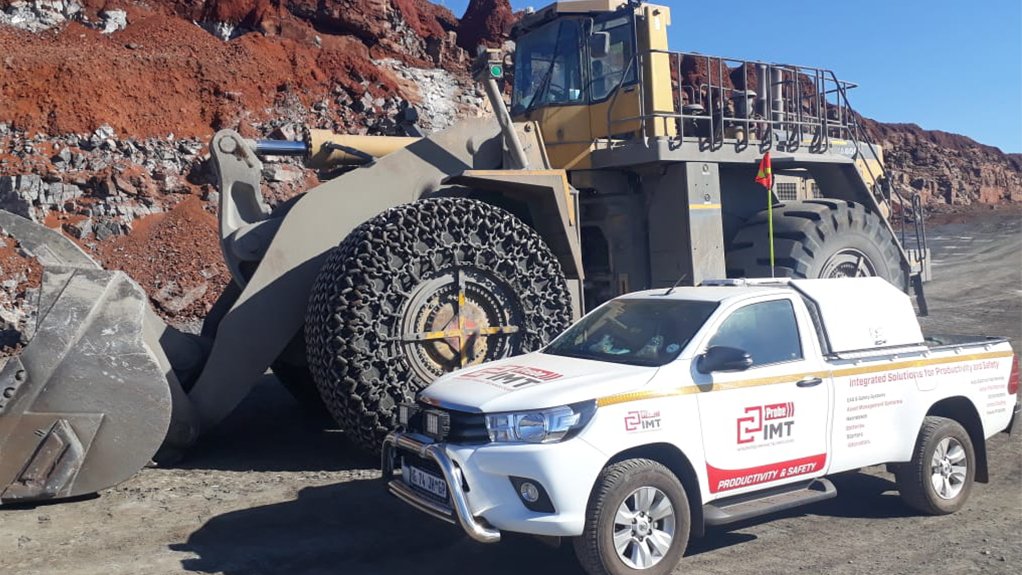Safer mining is about integrated risk management and safety protocols in a range of areas. Proximity detection and collision awareness is a crucial focus area in the drive to reduce fatalities, contributing to higher levels of protection against the risks associated with vehicle interactions on a mine, says mining company Probe Integrated Mining Technologies (IMT) CEO Gert Roselt.
If implemented holistically, rapidly advancing proximity detection and collision awareness systems (CASs) create safer and more productive mines, owing to advanced sensing technologies, sophisticated rules and intelligence and the wealth of data the systems are able to gather, analyse and feed back to mine operators.
Probe IMT says that South Africa is leading the way in the drive to implement the highest levels of CAS – to Earth Moving Equipment Safety Round Table (EMESRT) Vehicle Interaction Defensive Controls Model Level 9 (intervention controls), where electronic systems automatically slow down the machine and apply a controlled stop if a dangerous interaction is detected when the operator has failed to take evasive action to the prior Level 7 (operator awareness) alarm and Level 8 (advisory control) alerts.
The mandating of Level 9 CAS for trackless mobile machines (TMMs) in underground and surface mining in South Africa is now mooted for December 2023, as indicated by mining industry employers’ organisation Minerals Council South Africa safety and sustainable development head Dr Sizwe Phakathi ahead of Electra Mining Africa 2022.
The International Council on Mining and Minerals aims to eliminate all fatalities from vehicle interactions in mining by 2025.
Roselt highlights that collision avoidance ranked top of 13 different technologies identified by 47% of mines globally, and 57% of mines in Africa, expected to see significant investment in the coming two years, based on a 2022 survey by data and analytics company GlobalData.
“With 30% to 40% of mining industry deaths globally attributable to failures of vehicle interaction controls, this is no surprise. Advances in collision awareness are arguably already showing results, with one TMM-related death reported this year to date in South Africa.”
The Level 9 standard is a major leap from Level 8, which required systems to deliver an advisory instruction to operators. Now, electronic systems must automatically take mechanical control of the vehicle and slow down and apply the brakes at any mine where there is a significant risk of such collisions.
“Implementing reliable integrated systems that can comply with Level 9 requires long-term commitment and solid investment in sophisticated CAS systems that provide high integrity object detection, operator warning and automatic intervention, when necessary, to prevent an accident,” says Roselt.
“It must be far more than a box-ticking exercise, with integrated technology implemented in a holistic way that avoids the challenges of operator alarm fatigue, sensing technology inaccuracies, unnecessary alarms during normal operations and reduced system availability – all of which can impact on production.”
Roselt says, if CASs are implemented holistically, the data collected from multiple sensors related to potential incidents drives enormous value for safety and productivity, especially when artificial intelligence and machine learning can be applied.
For example, traffic flows can be managed and optimised to maximise production, he says.
“At Probe IMT, we have been working with carefully selected industry-leading solutions to help our clients ensure that they can meet the requirements of the EMESRT Level 9 intervention controls using the mining industry-developed ISO-21815 protocol.”
Probe IMT is a value-added partner for equipment, systems, digital solutions, and value-added services provider Wabtec Corporation.
“The Wabtec Collision Awareness Solutions Suite is a sophisticated and adaptable collision awareness and reporting system developed specifically for the mining industry with the aim of making mining operations safer, while helping to ensure optimal performance at a lower sustainable cost,” says Roselt.
He explains that software algorithms, which are able to interpret and anticipate the complex vehicle interaction scenarios presented during normal mining operations, enable the Wabtec systems to operate seamlessly with the operator based on human-centred design for new mining technology.
Using advanced technology field hardware and communications software, with real-time system health monitoring and event reporting, the Wabtec Digital Mine’s safety technology provides industry-proven reduction in vehicle interaction risk.
“With the right reporting and analytics tools to monitor and manage operator behaviour, safety culture and compliance can rapidly be improved.”
The surface offering can be deployed with a variety of proximity detection methods, including Global Navigation Satellite System (GNSS), radio frequency (RF), VLF magnetic and cameras, to provide one of the most effective high integrity systems on the market. The vehicle display unit includes touchscreen human-machine interaction, with graphics display of remote objects showing identification, range, speed and heading with configurable audible, voice and visual alarms.
Robust wide-view cameras eliminate blind spots with auto switching on direction of travel and to zones of object detection. Further features include equipment health monitoring, maintenance tracking, blending, and production reporting.
A strong differentiator is the high-integrity proximity detection using high accuracy GNSS augmented with time-of-flight RF combined with real-time monitoring and connectivity. This provides 360˚ protection for vehicles, equipment and personnel.
Strategically placed proximity units afford operators unparalleled situational awareness — contributing to improved safety levels on-site. Back-to-base reporting provides interaction reports, journey replay, hot-spotting, geofenced exclusion zones and alarm events, safety adherence reports and system health monitoring.
Roselt explains that this whole-of-mine safety aid is original-equipment-manufacturer independent as a standalone system. This means it is fully configurable and adaptable to site-specific requirements, but still offers low total cost of ownership.
CAS extensions can include integration with driver fatigue monitoring systems, fleet management/dispatch systems, machine vision, and asset performance management for mobile equipment.
Edited by: Nadine James
Features Deputy Editor
EMAIL THIS ARTICLE SAVE THIS ARTICLE
ARTICLE ENQUIRY
To subscribe email subscriptions@creamermedia.co.za or click here
To advertise email advertising@creamermedia.co.za or click here













